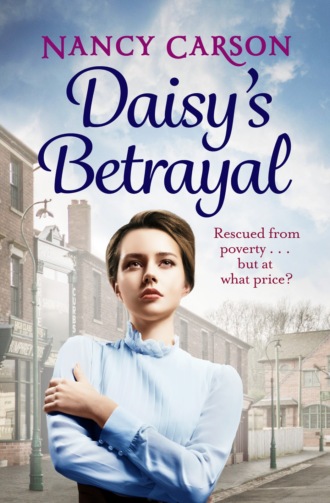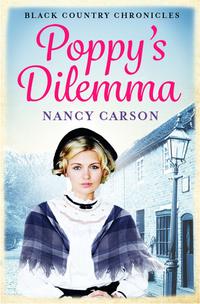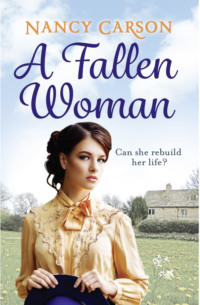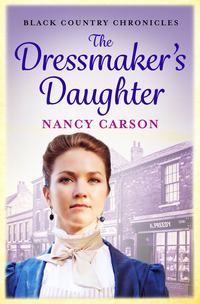
Полная версия
Daisy’s Betrayal
Mary sent for Dr McCaskie and it was evident he was worried about poor Titus. He promised to keep an eye on him, said that he must rest and not go to work. Daisy was desperate to help and handed over all her wages to her mother, arguing that she needed very little herself since she ate heartily and slept at the home of Mr Spencer. Already she had saved up and bought another uniform, and had made a couple of decent frocks besides for going out in. She was earning £12 a year by this time, not a fortune and certainly not enough to keep her family.
Of course, the Spencers were not so well off that Mrs Spencer had a lady’s maid, so Daisy carried hot water upstairs so they could wash. She worked in the kitchen with the cook and got to know her routine. By the time she was twenty, she was the head maid and earning £15 a year.
Meanwhile, Titus got no better and had to give up work entirely. He was beginning to lose weight, which he could ill afford to do. Mary applied for parish relief. It was always a struggle to find money for coal, for rent and for food. Daisy tried to borrow money to pay the doctor to treat her father, but realised she had no chance of paying it back, so gave up the idea.
Sarah, by this time had, left school and found work in service. Unfortunately, the family she worked for were not kind to her and she hated her job. Yet she stuck it out, concerned only that she give money to her mother to help keep them.
They all struggled through for a couple of years. Dr McCaskie was sent for again and he warned that Titus might be consumptive. Then, Daisy had a spot of good fortune. Again, through somebody she had got to know at church, she was asked if she would be interested in the position of housekeeper at a place called Baxter House on the rural north-western side of Dudley. The house was named after Richard Baxter, a long-departed headmaster at the grammar school, famed for having written the words to the hymn, ‘Ye Holy Angels Bright’. Baxter House was the home of Mr Jeremiah Cookson. Daisy had seen Mr Cookson before, as he was a business friend of Mr Spencer. She had also occasionally spoken to his wife in the course of her duties, as the couple were visitors to the Spencer household. Her wages were to be £60 a year, a goodly amount. Daisy found it impossible to resist when she realised how much easier it would be to help support her mother and father and pay for the doctor and medical treatment. Naturally, she was grateful to accept the position. She could scarcely believe that she was to become a fully-fledged housekeeper at only twenty-two years of age. When she went with trepidation and mounting guilt to see Mrs Spencer to terminate her employment, the lady of the house smiled benignly.
‘Oh, don’t worry, Daisy,’ she said. ‘Mr Cookson asked Mr Spencer a while ago for permission to approach you. He and his wife have had their eye on you for some time. They said how much they admire your demeanour and your application to your work.’
Daisy bobbed a curtsy. ‘Thank you, ma’am. I had no idea you’d talked about me.’
‘It’s a grand opportunity for you, Daisy, and you deserve it. Far be it from me to hold you back from finer things. I also understand the difficulties you face with your father unable to work any more. It must be a big worry for your poor mother. This new position means you’ll be of greater help to her too, I imagine.’
‘Oh, yes, ma’am. I already hand over all my wages to my mother. I only want for decent shoes and stockings and she gives me money back to buy those as and when.’
Mrs Spencer smiled sympathetically and touched Daisy’s arm. ‘We shall miss you, my dear. But we shall manage, I daresay. Come and see us whenever you have the time. You will always be welcome.’
Daisy tried hard to stem the tears that were welling up in her eyes but, rather than let them show, she swiftly thanked Mrs Spencer for her kindness and curtsied again before she turned and walked away. When she was out of sight she pulled her handkerchief from her sleeve and wiped the tears that, by now, were streaming down her face. She had been happy at the Spencers’ and they had been so kind. She vowed never to forget their kindness.
On 25th May 1888, a week after her twenty-second birthday, Daisy moved to Baxter House, a fine modern mansion built of red brick. The household was appropriately large too, with many more servants than there were at the Spencers’ more modest dwelling. Baxter House was set back from St James’s Road, close to where it joined Ednam Road, and overlooked green meadows and grazing cattle. No doubt Mr Cookson preferred it to overlooking the dirty, grey, slag-heaped outlook on the other side of the town. He was immensely rich and spent lavishly. It was said that he employed three hundred men at his iron foundry in Dudley, and had recently invested a great deal of money building a railway siding at the works.
Some of the maids at Baxter House were older than Daisy and at first she sensed some resentment that they should be told what to do and be given tasks by a girl so much younger. Yet she succeeded in earning their respect. She was never haughty to them, but gave them their jobs as if making a request and with an open smile to which they always responded positively. In so many big houses, girls were unhappy, often abused and sometimes even beaten. The staff of Baxter House were thankful they were well treated and appreciated. Nobody ever took it upon herself to rebel and make things uncomfortable for everybody else.
As soon as there was a vacancy for a maid Daisy recruited Sarah, her sister. She was fourteen by that time and a good, reliable worker, although not as bright as Daisy. Daisy even managed to secure her an increase on what she had been earning but Sarah would have come for less, glad to get away from that house in Holly Hall. Sarah settled in promisingly and Daisy was happy to have her under her wing. Most nights Sarah would go to Daisy’s little room on the top floor, where they would talk until the small hours, before returning to the room she shared with Hannah Bissell, a kitchen maid the same age as her.
‘Have you got a sweetheart?’ Sarah asked one night as she lay sprawled across Daisy’s legs.
Daisy was sitting up in bed attending to her fingernails. ‘You know I haven’t,’ she replied. ‘Have you?’
Sarah smiled bashfully and shook her head. ‘Have you ever had a sweetheart, Daisy?’
‘Once,’ she answered honestly. ‘For a while. His name was Charlie Bills. He was the baker’s boy when I worked at the Spencers’.’
‘Did you love him?’
‘I suppose I did. At first, at any rate. Leastwise, he made me feel all soppy.’
‘Did you let him kiss you?’
‘Yes, sometimes.’
‘Is it nice to be kissed by a boy?’
Daisy smiled patiently. ‘I think that might depend on the boy – and on how much you like him.’
‘Would you like a sweetheart again?’ Sarah enquired after listening carefully to Daisy’s answers.
‘If somebody came along who I fancied.’
‘Tell me the kind of man you fancy,’ Sarah said dreamily.
‘Oh, I have a vivid picture of my ideal husband in my mind’s eye,’ Daisy told her, and Sarah’s beautiful clear eyes flickered with interest. She sat up on the bed attentively, her back erect, her legs crossed under her cotton nightgown. ‘He’s very handsome with dark, wavy hair and kind, smiling eyes. He’s quite tall, with a straight back, not given to slouching … He’s clever, amusing, and good at making interesting conversation.’
‘Ooh, yes,’ Sarah enthused. ‘You don’t want some duffer who can’t keep up a decent chat, do you? And will he be rich, Daisy?’
‘Rich enough. Rich enough to afford our own servants.’
‘What about Mr Robert then?’
‘Mr Robert?’ she said with a shudder. ‘Are you serious? I can’t stand Mr Robert.’ Mr Robert was the middle son of Jeremiah Cookson of Baxter House. Unmarried, he still lived there. Daisy had already noticed the way Mr Robert looked at her. If he had designs on her, though, he could forget it.
‘He’s got a handsome friend,’ Sarah said, her long eyelashes veiling her eyes. ‘I wish I was a bit older.’
‘Oh? And what’s his name, this handsome friend of Mr Robert?’
Sarah sighed and picked a stray piece of cotton from her nightdress. ‘I dunno …’ There followed an introspective pause. ‘Anyway,’ she said eventually, ‘how are you going to meet somebody that rich, who’ll stoop to marry you?’
Daisy smiled as she realised that Sarah had already got the measure of the marriage market; she knew that wealthy middle-class sons would never demean themselves by marrying below their station, even if bedding housemaids and other girls of the lower classes was not out of bounds.
‘Oh, I shall.’ Daisy shrugged nonchalantly. ‘I just know I shall. I can put on airs and graces if I need to. I can easily copy the elegant women I see visiting Mr and Mrs Cookson.
‘You’ve set your sights high, our Daisy.’
‘Lord, you sound just like Mother,’ she said with mock disdain. ‘But if you’ve got any sense, you’ll set your sights high as well. Don’t be satisfied with some beer swilling navvy, or ne’er-do-well iron-worker like our father – not that I want to demean him,’ she hastily added. ‘But just look at our mother … You don’t want to end up like her, poor as a church mouse, not knowing where the next meal is coming from.’
‘I want to get married young and have lots of children, Daisy.’
The older sister stifled a scornful laugh. ‘You’ll have lots of children whether or no if you marry somebody who gets pie-eyed every night and makes you do disgusting things with him, whether you want to or not. Marry a man with something about him. Marry somebody who’ll respect you.’
‘Oh, I wouldn’t marry a nobody,’ Sarah said, catching on quicker than Daisy thought she would, for she was often slow on the uptake. ‘I’ll try to be like you. I’ll aim high. I’ll marry somebody with plenty of money, or not at all.’
‘Good,’ Daisy said. ‘Life will be so much easier, so much more comfortable.’
‘Mmm …’ Sarah mused. ‘It’s just finding somebody …’
‘Well, you’re a bit young yet to be thinking of marriage, our Sarah. There’s no rush.’
Chapter 2
On New Year’s Eve, in 1888, a party had been arranged at Baxter House and Daisy had done most of the organising, although Mrs Cookson herself had written and sent out all the invitations. It was to be a grand evening and the Cooksons’ immediate family, friends and business associates would be there; altogether, some fifty guests.
‘I think informal dining would suit us all better,’ Mrs Cookson said as she sat at the table in the breakfast room with a notepad in front of her. To her right was Daisy, to her left Martha Evans, the cook.
‘With so many people to cater for, ma’am, I agree,’ Daisy commented and looked at Cook for her confirmation.
‘I’ll prepare whatever I’m asked to,’ Martha said.
‘A buffet dinner that people can eat while they stand and talk. Any suggestions, Daisy?’
‘Well, a variety of meats in dainty sandwiches would be a start, ma’am.’
‘I could cook some ham, roast a joint of beef, a few chickens,’ Martha suggested. ‘Even some venison if we can get it. Then there’s smoked salmon, poultry and game birds. I could bake some little savoury pies and tarts as well, ma’am.’
Daisy nodded her head in agreement.
‘A good selection of cheeses as well, I think, Cook. The men enjoy their cheese after a meal. Oh, and I think a hot soup later, to see everybody homeward, would be a very satisfactory touch. Don’t you think so, Daisy?’
‘Yes, that would be very well appreciated, I believe, ma’am.’
Daisy had never seen so many varieties of cheeses when the grocer’s boy delivered them. For dessert Martha prepared syllabubs, fools, hot fruit tarts and pies, egg custards, creams and even ice cream. It was all to await the hungry revellers in the dining room, where lavishly dressed trestles had been laid out to accommodate it. Everything looked and smelled mouth-watering. The staff, of course, had their own cache of food in the kitchen, which they picked at when they had the opportunity. A trio of musicians had been hired to perform in the function room of the house, where a hearty coal fire burned in the opulent marble grate.
At eight o’clock the first carriage arrived and emptied out Alderman Jukes and his wife, who was appropriately bedecked in all manner of jewellery. The town’s Clerk of Works, Thomas Bakewell, and his wife followed them shortly after. Then a middle-aged couple entered; the wealthy and highly respected socialites, Mr and Mrs Alexander Gibson. He, once seen, was not to be forgotten; immaculately dressed, he had a superior bearing, like a duke. Thereafter, a veritable procession of carriages and hansom cabs halted in turn on the drive that ringed the front garden, disgorged their passengers and moved on.
Daisy hovered discreetly in the hall, trying to blend with the fashionable William Morris wallpaper, overseeing the servants who politely divested the guests of their hats, gloves, topcoats and scarves, while others handed them welcoming drinks. She had assigned Sarah to work in the kitchen and help serve the food later.
The house was filling up, and she could hear the chink of glasses, the reassuring sound of laughter. She could smell the rich aroma of cigars as smoke pervaded the air from the function room. The early signs portended a hugely successful evening and Daisy began to relax a little … until a well-dressed man was let in. He was about thirty she guessed, tall with a well-groomed head of dark hair and handsome beyond belief, with eyes that exuded the coolness and clarity of sapphires. As soon as she saw him she could not take her eyes off him. It was love at first sight.
He matched absolutely the image she had fondly carried in her head all those years of the man she believed she was destined to marry. He had to be the one. There were merely three obstacles to a union between them that she could perceive: his obvious wealth, her position as a servant and, not least, the fascinating young woman who accompanied him.
Of course, he did not so much as look in Daisy’s direction. However, she studied him and the girl, watching with extreme curiosity to see whether she wore a ring of any sort as she removed her gloves. She did, but it was neither a wedding ring nor an engagement ring. Naïvely, Daisy was encouraged. She scrutinised the girl carefully for clues as to her background. People intrigued her and always had; she observed them habitually, noticed their behaviour, their facial expressions, their reactions when spoken to, their body movements. One didn’t always have to hear a conversation to know what somebody was saying when the rhetoric of their movements and mannerisms told so much. The first thing that struck Daisy about the girl was her looks. She was not beautiful in the classical sense – she lacked the finesse, the innate elegance of a well-bred lady – but she had a pretty face, enhanced by a smooth, cared-for complexion and sleek, fair hair. Daisy could not help but notice her bare shoulders either, or the way her creamy breasts nudged at her décolletage with a youthfully firm resilience that defied both gravity and the constraints of corseting.
‘Lawson!’ It was the voice of Robert Cookson, Jeremiah’s son. ‘You made it. For God’s sake, grab a drink, man … Hetty, would you see that Mr Maddox’s hat and coat are looked after … and those of Miss, er …?’
‘Lampitt,’ Lawson Maddox informed him by way of introduction. ‘Miss Fanny Lampitt.’
As Hetty the maid took the girl’s hat and coat, Robert took her hand and put it gently to his lips, parodying the gallantry of a bygone age. ‘Miss Lampitt,’ he said admiringly. ‘Any friend of Lawson’s is a friend of mine. Especially one so beautiful. May I call you Fanny?’
Daisy continued to watch unobserved in the shadow of the broad, sweeping staircase as the girl, evidently overawed, either by Robert’s gushing manner or the opulence that surrounded her, fluttered her eyelashes, and looked up into Lawson’s twinkling eyes for reassurance and encouragement. And there Daisy gained another clue about her. This girl, this Fanny, was unsure of herself. She seemed out of her depth with those affluent people and in such unfamiliar, sumptuous surroundings.
‘Oh, please call me Frances,’ the girl replied, an entreaty in her voice.
Frances? Fanny? Of course. Daisy smiled to herself. No wonder this girl would rather they didn’t call her Fanny. Fanny was reserved for a woman of a different calibre. To Daisy, it seemed this girl was endeavouring to give the impression she was something she was not. To her credit, her outfit would never have given her away. She wore a good blue satin dress that matched her eyes, with a tight bodice and puffed sleeves; the height of fashion.
‘I think … In fact, I’m sure I prefer Fanny, if you don’t object,’ Robert said with a wink to Lawson. ‘It has a certain ring to it.’
‘All right. Fanny, then,’ Fanny answered with an acquiescent smile. ‘If you’d rather.’
‘That’s settled then … Amy, would you pass Miss Lampitt a drink? What would you like, Fanny?’
‘Oh, a glass of port, please.’
Amy, another servant, who was looking after the welcoming drinks, handed Fanny a glass of port, then a glass of whisky to Lawson. They moved on, into the main room, chatting amiably.
Daisy sighed, envious of the girl despite her name. She had done well for herself to attract the attention of somebody like this Lawson Maddox. And yet she felt sorry for Fanny as well. Fanny was on tenterhooks lest she make some awful social gaffe that would reveal her true status. She was brave and yet, the way she looked at Lawson so adoringly, it was obvious she would walk barefoot through burning coals for him.
When the last of the guests had arrived and had been welcomed Daisy went to the kitchen to check how things were progressing there. Martha the cook assured her that everything was under control. So she went upstairs to her room simply to check herself in the mirror. Oh, it was for him. Certainly, it was for him. A wisp of stray hair tickled her neck and she tucked it back into place. She pinched her cheeks and bit her lips to redden them and inspected the overall effect. She was not displeased with what she saw. She had been given permission to wear an unpretentious dress that suited the evening and she had bought it specially. It was midnight blue, very plain, made up of separate bodice and skirt, with a modest décolletage. Mrs Cookson had also permitted her to wear a little plain jewellery, so she wore a thin silver cross and chain and matching earrings that had been given to her by Charlie Bills once as a Christmas box. With her hair piled up she looked appealing and yet demure. Her demeanour was entirely different to Fanny’s. Although they came from similar backgrounds, Daisy knew she did not betray her true beginnings when out of uniform; and wearing that tasteful though inexpensive dress, nobody who was not already aware she was the Cooksons’ housekeeper would be any the wiser. It occurred to her then to try a little experiment and put her theory to the test.
So she walked slowly, confidently downstairs, practising her poise as she went. The party was getting noisier and the musicians were struggling to be heard over the buzz of conversation and laughter. Skeins of blue smoke were drifting through the hall and being drawn up the staircase by the lure of an open window at the top. She made her way to the main room and entered unnoticed. For a while she stood and watched with interest the couples dancing a military two-step. She must have been there for about ten minutes, excusing herself with a smile if she found she was inadvertently standing in the way of couples trying to get past her … when Mr Robert Cookson sidled up.
‘Daisy! My word, you look ravishing. Won’t you have the next dance with me?’
It would have been impolitic in the extreme to have refused so, when the trio embarked on the next dance, a polka, she joined him and whirled around him nimbly.
‘You dance very well,’ he said when they met face to face for a few seconds.
‘Thank you,’ she replied with a broad smile at the next conjunction. ‘It’s what servants do sometimes in their spare time.’
‘Dancing is not the activity I heard they do,’ he said, with a provocative flick of his eyebrows and a smug grin as he twirled around.
Her skirts rustled as he brushed uncomfortably close to her at their next turn.
‘How so, Mr Robert?’ she said, retaining her smile. ‘If you mean what I think you mean, I am not aware of any unsavoury goings on at Baxter House.’
‘Fiddlesticks, Daisy! It goes on everywhere.’
‘In some houses, maybe … But not here, I can promise you. In any case, it’s a delicate subject to discuss whirling round on the dance floor.’
‘Quite the lady, aren’t you?’ he commented, and she could not make up her mind whether he was being sarcastic or complimentary. ‘How old are you now, Daisy?’
‘I was always led to believe it impolite to ask a woman her age,’ she answered, avoiding his eyes.
‘That depends on the eminence of the woman,’ he said cuttingly, putting her roundly in her place. ‘So what is your age? Twenty-one? Twenty-two?’
‘About that,’ she replied, humiliated and yet determined not to give him the satisfaction of a direct answer.
‘And not married yet. Nor even courting, I am led to believe.’
Daisy could scarcely believe his outrageous directness. As they tripped across the dance floor she looked directly into his eyes. ‘Mr Robert, I can assure you that no man I have ever met has made me yearn to be married to him, either for love, money, or convenience.’
‘My dear Daisy,’ he guffawed, overlooking or failing to note the rebuff.
Thankfully, at that moment, the dance ended. At once Daisy made a move to leave him and he unhanded her. She stood for some minutes, her head down, dejected at Robert’s disparaging attitude.
When she looked up she saw that people were once more dancing, though she had not noticed the trio strike up again, nor the sound of skidding feet marking the polished wooden floor as couples swivelled graciously around each other. So many straight backs and elegantly inclined heads. This throng, apart from the uncaring Mr Robert, was the cream of Black Country society. She scanned the sea of faces as they danced, and she spotted him on the floor again. His back was towards her and his partner was Fanny. Was he trying to make a cuckold of his friend?
‘Pardon me for saying so, but any man who would leave you standing on your own at the edge of a dance floor clearly doesn’t deserve you,’ a man’s voice whispered very close to Daisy’s ear. ‘Especially since you’re standing directly beneath a sprig of mistletoe.’
She turned her head to see who had spoken. At the sight of Lawson Maddox and his twinkling eyes she gave a blushing smile, and looked up at the mistletoe optimistically.
‘May I introduce myself?’
‘No, please,’ she replied with breathless ambiguity at being taken by such a pleasant surprise.
‘Lawson Maddox. I hope you’ll pardon me but I’ve been watching you and, apart from the polka you danced with my friend Mr Robert Cookson, you’ve been standing alone. I assumed therefore that you are unescorted. Don’t you know anybody here?’
‘Oh, yes, yes,’ she said recklessly. ‘I am with others.’
‘Are you a relative of Mr or Mrs Cookson?’
‘No … But I am connected,’ she added obscurely. Obviously, he did not know she was merely a servant. And why should she confess it?
‘Connected by trade, then? Through your parents, perhaps?’
She gave an indefinite half nod. She had no wish to lie and, she thought, the best way out of answering directly, which would certainly turn her into a liar, was to turn the conversation.
‘Isn’t that your lady friend dancing with Robert now?’ she remarked.
‘How do you know she’s my lady friend?’
‘Because I saw you enter with her earlier.’






